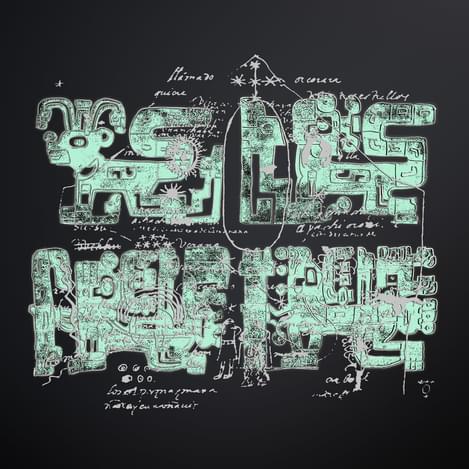Elusive producer Elysia Crampton goes epic on her heritage-exploring new album
"ORCORARA 2010"

Born in rural California, as a child Crampton spent her childhood between the US, Bolivia and Mexico before settling in Pacajes. She is Aymaran, the indigenous population of the Andes which was scattered through Boliva, Peru and Chile by the Inca occupation. This nomadic heritage is reflected in her boundary-less music, with songs spanning electronica, cumbia, drone, metal, R&B, reggaeton and crunk. To love one of Crampton’s albums is not to know her work. 2017’s experimental Spots y Escupitajo was built from short fragments of sound, yet Crampton followed it with Elysia, a direct set of six steaming bangers.
Orcorara 2010 is yet another twist. While most of her albums last barely twenty minutes, her fifth stretches over an hour, with one song longer than her entire third LP. More organic than any of her prior works, the opening track “Secret Revine” unnerves with creeping piano and heady, heavy drums. Across 70 minutes we hear Jeremy Rojas recite his poems, Embaci sing sweet R&B, textured IDM cuts, Shannon Funchess throat-singing and yes, even crunk.
These songs are obtuse not because of the deliberate dissonance of her previous work but in their slow-moving elusiveness. Crampton packs a world of sound into her albums, and to listen is to undertake a journey of sorts. In the way American Drift toured the US state of Virginia - another of her homes - Orcorara 2010 explores the intergenerational violence perpetrated against her ancestors.
According to Crampton the album follows “fugitives of Christian violence in a twilight called Puruma, returning to Mama Cocha, the sea that theorists call Nowhere”. Puruma is a real Bolivian village named after the river upon which it sits, while Mama Cocha is an Inca goddess of the sea; a spirituality which has always been part of Crampton’s work. In music she blesses Aymarans with a fate more graceful than the reality many faced under Spanish rule.
Crampton attempts to do for generations of people what The Beach Boys did for California and Solange has done for Houston; capture the essence of a whole subculture in sound. Moments like “Spring of the Wound” encapsulate Crampton’s achievement; it boasts reggaeton percussion which could make a trunk rattle but its shot through with cold ambience and wilting woodwind: freezing part of a culture in time. The fact that she does so for the Aymara, a people whose story is rarely heard even in the neighbouring US, is more evidence that Elysia Crampton is a voice to be heard, if you can find her.
Get the Best Fit take on the week in music direct to your inbox every Friday

Prima Queen
The Prize

Femi Kuti
Journey Through Life

Sunflower Bean
Mortal Primetime





